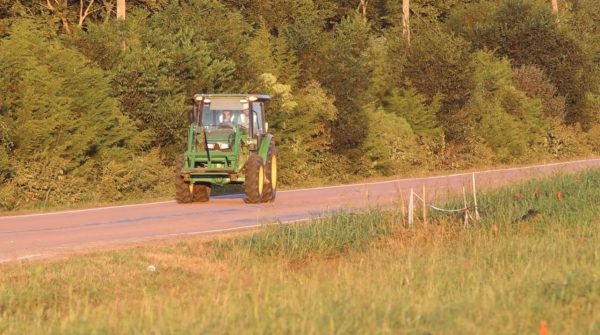According to the U.S. Census Bureau, the national poverty rate in 2023 was 11.1%, but Mississippi held the second-highest poverty rate at 18%. Along with this statistic, Mississippi’s labor-force participation rate remains the lowest in the nation at 54.3%, but Magnolia state leaders are slowly but surely attempting to combat this crisis.
Joe Maxx Higgins is the CEO of the Golden Triangle Development LINK, an economic development organization that promotes growth in Clay, Lowndes and Oktibbeha counties in Northeast Mississippi.
“Our goal is to grow the tax base, create jobs and opportunities, and at the end of the day, improve the quality of life of the people who live here,” Higgins said. “If you can get a good job and buy a fishing boat to take your son fishing, or if you can take a vacation that you’ve never been able to take before — that’s good stuff.”
Over the last 21 years, Higgins said his organization has attracted between $10 and $11 billion in capital investment for the Golden Triangle region and created over 10,000 jobs. Along with these efforts, a new solar facility is under construction in Clay County, and Higgins hopes this will be just another project to help move the needle for Mississippi.
“When these solar projects are being built, we are seeing between 300 and 400 people building. So, for the one to two years of construction, these are some good construction jobs during that period of time. After construction is over, the job count isn’t very much, but in the long run, the wealth that is generated is tremendous.”
The $200 million, 2,200-acre solar farm project by Origis Energy will provide Clay County and the local school district with significant tax revenue.
“The [solar facility] will pay the schools and the county, for the first ten years, about $500,000 in taxes. In year 11, that number triples — about $1.5 million to the county and $1.5 million to the schools,” Higgins said. “And this is real money.”

However, many college students and the younger working class still choose to leave the Magnolia state.
A 2022 study by Mississippi’s State Auditor Shad White showed that nearly 50% of Mississippi college students leave the state after graduation for bigger, better job opportunities elsewhere.
Meredith Grafton is an MSU freshman from West Memphis, Arkansas. Grafton said she is all too familiar with high poverty rates and low job opportunities but would consider returning to the Magnolia state if she could find a stable career.
“I haven’t really experienced the lack of opportunities firsthand because I’m not from Mississippi. But I see a lot of it in my hometown, so I know jobs are limited. I think that this is definitely a problem in Mississippi as well, but I love it here, and I would consider coming back here for work,” Grafton said. “But not having as many job opportunities is a thing for sure, so it depends on what’s offered compared to other places.”
Mississippi State University construction science professor George Ford asked students in his mechanical-electrical systems class their plans after graduation, and many of their answers reflected a similar mindset.
“I asked the 62 students in that class how many of them plan to stay in Mississippi, and only two of them raised their hands,” Ford said. “A lot of the young people — they’re wanting to go to Dallas or to Denver or to San Francisco. It’s just a different economic situation for a lot of folks. But a lot of those places bring higher cost of living, and so, there’s really not an advantage in the end, but I suppose you’ve got more options.”
However, Ford said that economic developments like the solar farm that require a large workforce are a sign of growth in an area.
“When we see construction jobs, that’s sort of a sign to everyone around that things are going pretty well,” Ford said. “One of the ways construction guys look at prosperity of an area or how much business is going on, is how many cranes.”
While Higgins acknowledged Mississippi’s disparity compared to the rest of the nation, he said that people should not overlook the opportunities available within the Magnolia state and even the Golden Triangle region.
“These solar projects are just icing on the cake, but it’s the other jobs that really drive that. Many people don’t realize that [Mississippi] is building tires, diesel engines, trucks, steel, aluminum — and those companies pay a lot of money. There are people out there making upwards of $200,000 a year, and that’s not the manager, that’s the rank and file people,” Higgins said. “So, I really hope that we’re getting to keep more and more of these students.”
As Mississippi still falls behind, Higgins explained that the state’s goals of economic growth and prosperity are a work in progress.
“We’ve just got to keep putting our left foot in front of our right,” Higgins said. “We’re still rural, we’re still poor, but this region is doing better than probably a lot of places in the state, and it’s our job to make sure we can keep it going.”







